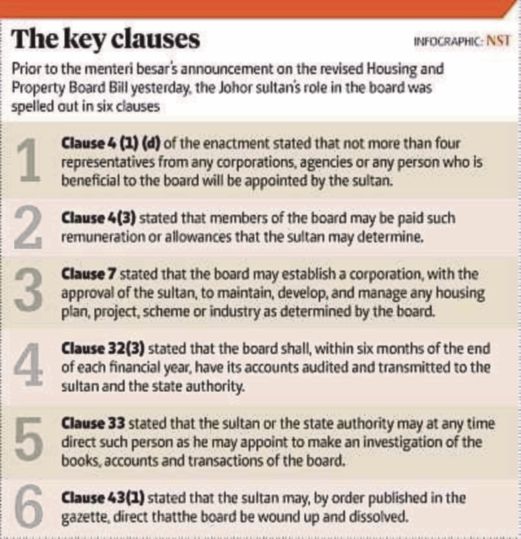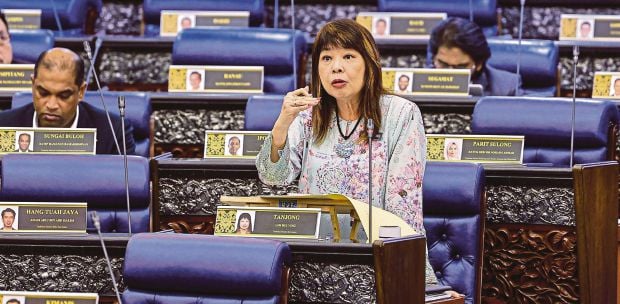THE Johor government has decided to slightly water down the controversial enactment on the proposed Housing and Property Board, less than 24 hours before it is due for tabling.
Amid mounting public outcry over some of the sensitive provisions in the original draft, Menteri Besar Datuk Seri Mohamed Khaled Nordin said yesterday an amended version would be introduced instead.
"We will make certain changes, especially clauses on the role of the sultan," he said when winding up the debate on royal address at the state assembly yesterday.
Khaled said the bill would retain the clause giving the sultan the power to appoint the board's directors but only upon the advice of the MB.
"However, other clauses that contain references to 'raja' will be replaced with the term 'state authority'.
"This (the appointment of board directors) will be the only clause where the word 'sultan' will appear. Other clauses in the enactment that mention the word 'sultan' will be changed to ' state authority'."
Khaled said the state government was sincere in introducing the enactment.
"There is no effort on our part to grant executive power to the sultan and we have never intended to go against the tenets of constitutional monarchy that is practised in this country.
"There should be no problem for any individual to support the enactment as it is for the people. We will know whether the opposition will support it or not tomorrow (today)."
Khaled said it was unfortunate that the enactment had been politicised and misunderstood as its aim was to ensure the effectiveness of the state government's efforts to provide more affordable housing in Johor.
He said he was puzzled by why certain parties were critical of the enactment even though its contents were similar to the enactment for the establishment of Johor Corp.
"For your information, Johor is the pioneer of the concept of constitutional monarchy.
"Before other states or the Federal Government adopted the concept, Johor had already adopted it through the introduction of the State Constitution in 1895.
"In discussing the power vested in the sultan, reference must be made to Part Two, Clause 7(1) of the State Constitution, which states that the sultan must act with the advice of the state government.
"This is in line with Article 40 of the Federal Constitution."
The move, however, failed to draw positive response from detractors.
Law experts said the amendments made no difference as the sultan was still involved in executive duties.
Former Malaysian Syariah Lawyers' Association president Datuk Mohamad Burok said there was no clear separation of powers, while Universiti Malaya law professor Gurdial Singh Nijar said the Federal Constitution stated unequivocally that the ruler in exercising his functions under the Constitution of a state, must act in accordance with the advice of the state executive councillor.





